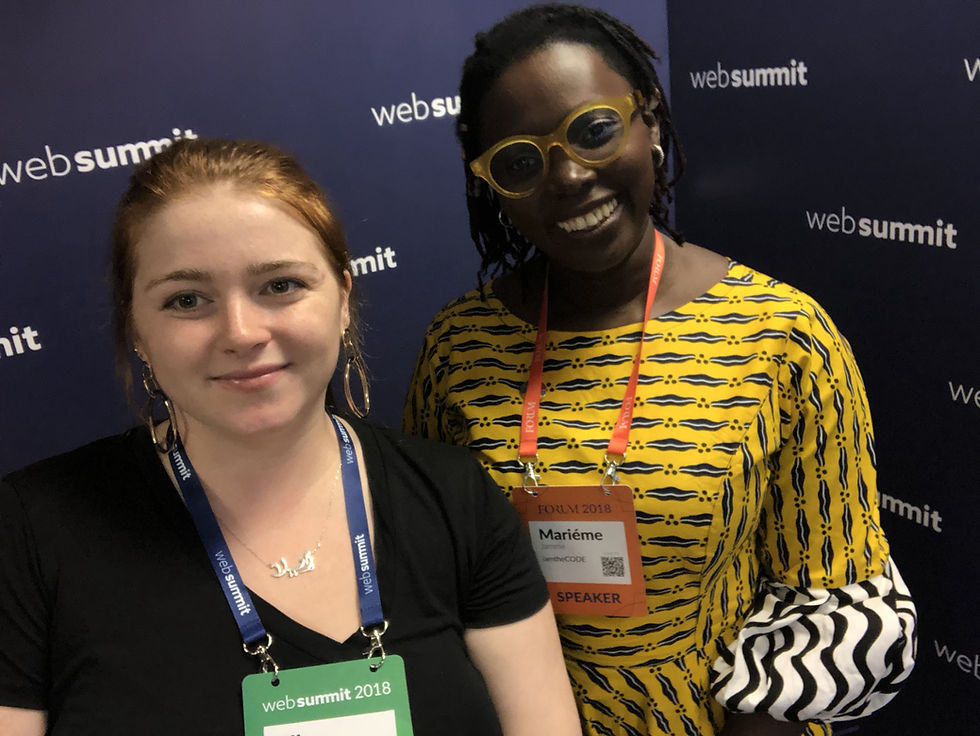#InterviewSeries | Anne-Laure Le Cunff
- Ella Botting
- Oct 24, 2018
- 3 min read
The #InterviewSeries is a collection of intimate discussions with womxn in the technical & digital spaces. They are entrepreneurs, developers, students, cyber-security experts, managers, designers and social media queens. The aim of the series is to increase the visibility of womxn in tech, to prove that no womxn's journey is linear & to celebrate their successes. Whatever your passion or skill or gender, there's something out there for you and these womxn prove that.
Anne-Laure Le Cunff is an entrepreneur, author, speaker, and community builder. After working at Google in San Francisco, where she managed global marketing for digital health products such as Google Fit and WearOS, she moved to London to start Ness Labs, a venture studio developing products focused on wellness, creativity, and culture. Her work has been featured in WIRED, Forbes, and more. She is also a MSc of Applied Neuroscience candidate at King’s College. Her side projects include #diversity30, an initiative celebrating diverse makers, and community lead for Indie Hackers in London.

Tell us a little bit about your journey into your role.
Technology has always fascinated me. I started coding websites and giving HTML templates away for free when I was 12 and my parents bought our first computer. I was maintaining several blogs and online forums, some of them with ten of thousands of users. When I was accepted at Google for a six-month internship in London, I was over the moon. After a few years working alongside amazingly talented and fun people, I decided to take the plunge and start my own company. It’s been an exciting journey, between building a team, launching products, giving talks, and joining an accelerator.
How do you personally use technology in your day to day? How do you use technology in your role?
Probably too much! I spend a lot of my time on my laptop either coding, designing, or writing stuff. I also check my phone a lot as I’m part of several online tech communities, some of them I animate or moderate. At home, I don’t have a TV but I’m a big fan of Google Home to listen to music for example. On-the-go, I’m addicted to Google Maps and Google Local Guides to find good restaurants and places to visit.
What have been the best learning resources for you?
I’m currently studying part-time at King’s College, so that’s obviously a great learning resource for me when it comes to neuroscience. I love that I have a login that gives me access to lots of research papers that are unfortunately behind paywalls, and their library on campus is also a gold mine. Beside King’s College, I love EdX, where I’ve taken several classes already. It’s incredible to live in a day and age where we have access to such brilliant minds at the click of a button. Finally, I read a lot. I order way too many books on Amazon. This is one of my favourite ways to learn.
With regards to technology/ digital, what do you think will be our biggest barrier to success in the future?
The way we are approaching artificial intelligence worries me sometimes. We run the risk of replicating and amplifying our human errors and biases. Instead of making things better, we may be reproducing the same mistakes, but faster.
Who makes up your support squad?
My friends and my family. They are the ones who have always been and will always be there, even in the most challenging of times. I appreciate their support and their honest feedback.
What’s your favorite piece of advice to offer entrepreneurial/techy/digital women?
Don’t be shy. Don’t be afraid to look stupid. Ask questions. Connect with potential mentors on Twitter and LinkedIn. Write. Put yourself out there. Most people in the tech community are delighted when women are reaching out and are excited by the potential of science and technology.
Useful Links



Comments